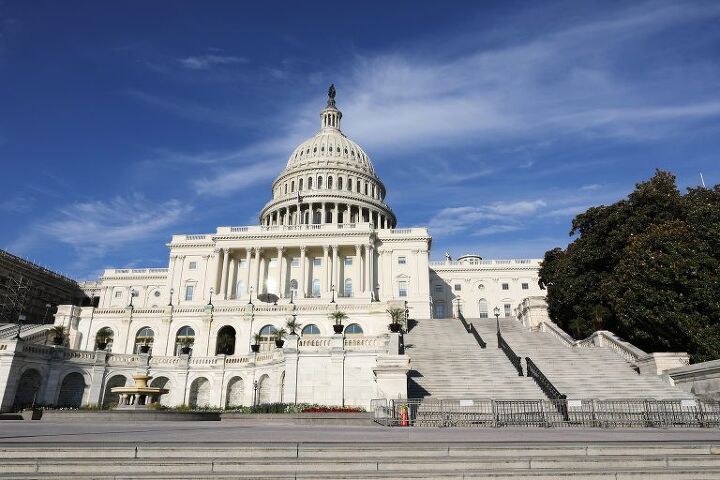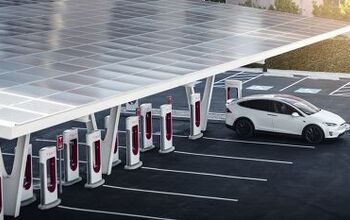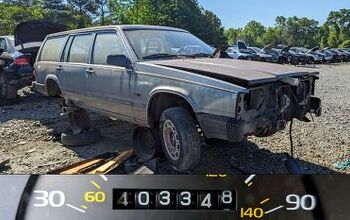Something to Agree On: Everyone Wants More Autonomous Vehicle Legislation

While the United States has enacted some laws governing autonomous vehicles, the framework is pretty loose. Automakers have a cap on the number of test vehicles they’re allowed to field. They also have to get permission from the National Highway Traffic Safety Administration, but safety reporting is basically voluntary — and there’s plenty of conflict with existing safety standards.
A House Energy and Commerce subcommittee hearing held Tuesday sought to address the issue by gathering input from an array of sources, some of which had conflicting goals. And yet it appears that a consensus has miraculously been reached on Capitol Hill. All sides want more laws passed governing autonomous vehicles, albeit for various reasons. Consumer groups want assurances that AVs will remain safe and service as many people as possible; industry groups want a clearcut regulatory framework they can use to gradually shift test mules into products with more intellectual property protection and less red tape.
Rep. Cathy McMorris Rodgers (R-WA), said the U.S. had fallen woefully behind the rest of the world — and may even be holding up development — since passing the Self Drive Act in 2017.
“China is using our infrastructure, testing on our roads, collecting information on our citizens and stealing our technology to beat us,” Rodgers said. “There is a global race to AVs. Do we want China to win that race or do we want to lead?”
Even though that race currently resembles something out of an elementary school field day, development continues and progress is being made. Congress will undoubtedly need to put more rules on the books to avoid future conflict, but it’s never really showed a robust, collective understanding of the technology. Tuesday’s hearing was supposed to help with that, but, according to Automotive News, everyone in attendance asked for rather specific items. The only overarching theme was a high emphasis placed on ensuring safety.
From Automotive News:
Gary Shapiro, CEO of the Consumer Technology Association, which produces the CES trade show, said those involved in developing AV technology and legislation should be focusing on “safety, empowerment and competitiveness.”
He said the lack of a national goal and an unclear sense of urgency are hindering the country’s progress.
Cathy Chase, president of Advocates for Highway and Auto Safety, argued against the claim that the U.S. is falling behind other countries in advancing the deployment of AVs.
“The U.S. is not behind in other countries in allowing them to go to market, but we are behind in establishing comprehensive safeguards to ensure that this progress happens without jeopardizing or diminishing public safety,” she said.
Chase called for legislation that advances a public safety agenda — not just an economic one — and addresses a broad range of topics on safety, accessible mobility and consumer confidence.
Jeffrey Tumlin, director of transportation for San Francisco’s Municipal Transportation Agency, also called on Congress to require companies to include event data recorders in AVs to preserve information from sensors, and that every safety incident involving a self-driving vehicle be documented in a national public database.
Interestingly, there was little discussion of any negative ramifications of rampant AV deployment and widespread use of advanced driving aids. In fact, subcommittee chair Jan Schakowsky’s (D-IL) opening statements suggested that automakers leaving such technologies as expensive options (rather than standard equipment) was a problem. While she still urged caution in issuing new legislation, it had nothing to do with studies suggesting driving aids actually lower a person’s ability to act safety behind the wheel, or how fallible some of these systems can be. Her concerns were largely economic.
“More than 4.4 million americans aged 16 and over work in some capacity as drivers,” Schakowsky said. “After NAFTA was passed in 1993, which resulted in enormous job losses, the federal government had done next to nothing to support workers who were displaced and we can’t let that happen again.”
John Bozzella, CEO of the freshly formed Alliance for Automotive Innovation lobby, said Congress need to act swiftly, adding that the success of autonomous vehicles relied “on a robust federal safety agency, increased public awareness and education, and coordination between federal, state and local government.” But he also said each group needs clearly defined roles, with whatever legislation comes next having enough flexibility to change as the technology evolves.
Bozzella also said the best path to modernizing our roadways was to continue exempting AVs from existing safety standards, something Ms. Chase disagreed with. Existing regulations only require automakers to submit voluntary safety reports as they each run thousands of test vehicles on public roads. Saying it’s more than the government could possibly keep tabs on, she believes the ramp-up to 100,000 AVs per company, while not having to adhere to the same standards as regular cars, totally fails to address public safety.
“We’re talking about a lot of vehicles right now that are going to be exempt from federal motor vehicle safety standards. I don’t want to be on the road with cars exempt from these safety standards. In fact, we offer there should be many more safety standards,” Chase explained. “We’re talking about minimum performance standards. If a company cannot comply with a minimum performance standard, then the vehicle should not be on the roads.”
Check the entire hearing out for yourself:

A staunch consumer advocate tracking industry trends and regulation. Before joining TTAC, Matt spent a decade working for marketing and research firms based in NYC. Clients included several of the world’s largest automakers, global tire brands, and aftermarket part suppliers. Dissatisfied with the corporate world and resentful of having to wear suits everyday, he pivoted to writing about cars. Since then, that man has become an ardent supporter of the right-to-repair movement, been interviewed on the auto industry by national radio broadcasts, driven more rental cars than anyone ever should, participated in amateur rallying events, and received the requisite minimum training as sanctioned by the SCCA. Handy with a wrench, Matt grew up surrounded by Detroit auto workers and managed to get a pizza delivery job before he was legally eligible. He later found himself driving box trucks through Manhattan, guaranteeing future sympathy for actual truckers. He continues to conduct research pertaining to the automotive sector as an independent contractor and has since moved back to his native Michigan, closer to where the cars are born. A contrarian, Matt claims to prefer understeer — stating that front and all-wheel drive vehicles cater best to his driving style.
More by Matt Posky
Latest Car Reviews
Read moreLatest Product Reviews
Read moreRecent Comments
- Corey Lewis It's not competitive against others in the class, as my review discussed. https://www.thetruthaboutcars.com/cars/chevrolet/rental-review-the-2023-chevrolet-malibu-last-domestic-midsize-standing-44502760
- Turbo Is Black Magic My wife had one of these back in 06, did a ton of work to it… supercharger, full exhaust, full suspension.. it was a blast to drive even though it was still hilariously slow. Great for drive in nights, open the hatch fold the seats flat and just relax.Also this thing is a great example of how far we have come in crash safety even since just 2005… go look at these old crash tests now and I cringe at what a modern electric tank would do to this thing.
- MaintenanceCosts Whenever the topic of the xB comes up…Me: "The style is fun. The combination of the box shape and the aggressive detailing is very JDM."Wife: "Those are ghetto."Me: "They're smaller than a Corolla outside and have the space of a RAV4 inside."Wife: "Those are ghetto."Me: "They're kind of fun to drive with a stick."Wife: "Those are ghetto."It's one of a few cars (including its fellow box, the Ford Flex) on which we will just never see eye to eye.
- Oberkanone The alternative is a more expensive SUV. Yes, it will be missed.
- Ajla I did like this one.


































Comments
Join the conversation
OMG China is beating us .... in this race for the Darwin award. I'm good with losing.
Sooner or later we will have to introduce basic income benefit for all those displaced by robots. Robots are much more efficient than humans and it will result in more prosperity for everyone not less.